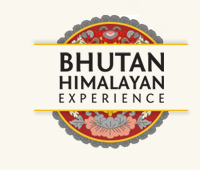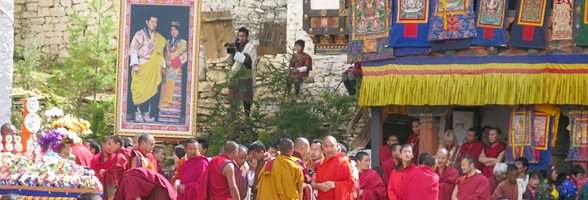Bhutan is a constitutional monarchy. King Jigme Singye Wangchuck was head of the state but handed over power over to the 5th King, Jigme Khesar Namgyal Wangchuck, the former crown Prince in 2007. Issues concerning the preservation of his country, people’s national identity, as well as, the natural environment has been on top of the King’s agenda. A balance between modernization and tradition is a primary objective. Lhengye Shungtsog holds executive power. Legislative power is shared between the government and the national assembly.
Bhutan’s economy has been driven primarily by agriculture, forestry and the sale of hydroelectric power. 80% of the country is focused on agricultural production. It is only recently that tourism has started to generate significant dollars for the government. This rise of tourism has helped to promote the weaving and manufacturing of religious art, and to build infrastructure to support the demands of tourism. Bhutan’s economic relationship with the world is very limited with little trade in and out of the country. Internally, virtually no industry exists which has helped to keep Bhutan’s skies, mountains and rivers clean.

